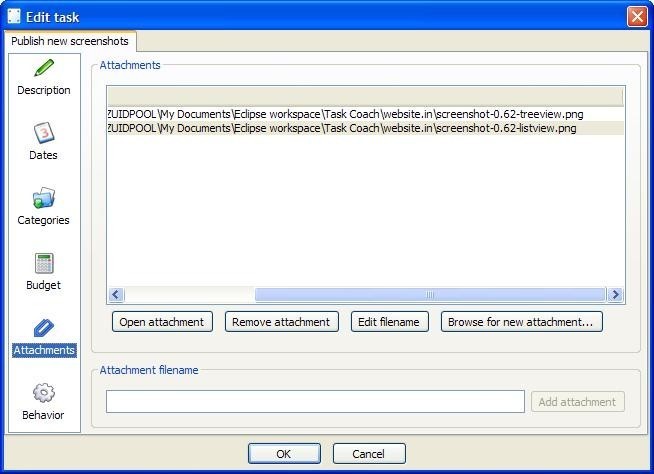

I will delete around 40% of what I collect to give you a benchmark. You want to be directed, not having to edit.Īlways be bold and delete tasks. You want to avoid wasting time having to curate your list every day. Each day, when you look at your list, it tells you what needs to be done that day, and whatever is on that list is focused and relevant. The goal of a task manager is to keep it clean and tight. You only need a single recurring task, reminding you to review your contact sheet to see what calls you need to make that day. Telephone numbers, email addresses, notes, and date of last contact (not something easily contained within a task). You have complete freedom over what fields to have in your spreadsheet, so you can keep any information there. When the day arrives three months later, you will find you have too many tasks, and this task will get rescheduled for another day, and your efficiency drops.Ī better approach for this kind of task is to create a spreadsheet. Unfortunately, when you do this with a large number of clients (or potential clients), you are essentially adding random dates, and you have yet to learn what will be happening on a given day in three months’ time.

For example, if you have a client you feel you should follow up or check in with in three months, you could add that to your task manager, add a date three months in the future and feel very proud of yourself. Then, you only need a recurring task in your task manager telling you to clear your action this day folder in email.įollow-up and check-in calls are other areas that contain hidden dangers to the efficiency of a task manager. Instead, email can be self-contained by creating an “Action This Day” folder and dedicating time each day to clear that folder. That is being very strict about what gets into your system in the first place.įor instance, tasks that emanate from email should never be in your task manager. However, there is one step that is rarely spoken about (or written about) that we should all adopt. With your notes, you are collecting less there, so clearing this once or twice a week should be sufficient. Committing to spending five to ten minutes a day clearing your inbox will eliminate the overwhelm so many people experience. Once you’ve developed the habit of collecting, you will likely collect around five to fifteen new daily tasks. The first step is to commit to clearing your task manager’s inbox every 24 to 48 hours. If you are not regularly clearing your inboxes, you will again find yourself swamped and overwhelmed. We collect ideas, articles to read, and so much more and dump these into our notes app. This doesn’t just manifest itself in your task manager, either. Yet, at the same time, you are adding to the inbox, so within a few days, it’s now 200+ tasks, and this gets repeated until you eventually decide to delete everything and start again. It’s too many tasks to clear, so you don’t do it. If you are not regularly clearing your inbox, it will become swamped and overwhelming, and instead of clearing a few tasks, you now have 100+ tasks to clear, creating a cycle of procrastination. You then add it to the appropriate holding pen (project, time sector etc.) Then, later, you go through what you collected and decide what needs to be done (if anything) and when you will do it. You collect something and add it to your inbox. A way of reviewing what we collected and deciding whether we want to commit to doing the task or follow through on the commitment.įor instance, the inbox is a great filter. The solution to this is to build a filter. We can always go back into our system and clean it out later, but we need to develop the habit of collecting stuff in the first place to have a system to work with. I have wrestled with this for a while, and in the end, I concluded the need to develop the “collecting” habit outweighed the problem of swamping a system. On the one hand, it’s crucial to develop the habit of collecting our ideas, tasks, and commitments, yet on the other hand, if we are collecting too much stuff, we quickly swamp our system, and it becomes overwhelming. One of the dilemmas I have as a time management and productivity coach is on the side of collecting information.


 0 kommentar(er)
0 kommentar(er)
